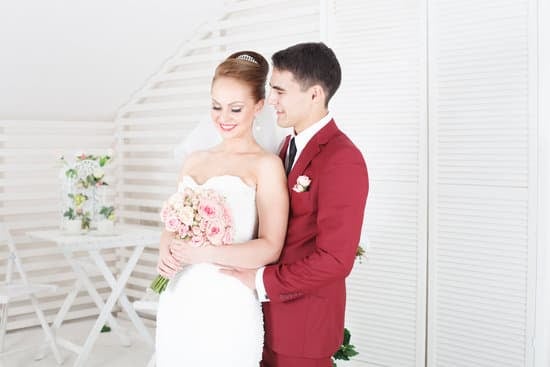A wedding in Ramallah is not just a celebration of love and union, but also a vibrant display of the rich cultural traditions that have been passed down through generations. Located in the central West Bank, Ramallah serves as the perfect backdrop for a traditional Palestinian wedding, steeped in customs, rituals, and symbolism. In this article, we will take a closer look at the various aspects that make a wedding in Ramallah an unforgettable experience.
The city of Ramallah, with its stunning landscapes and historical significance, sets the stage for a magical wedding experience. Known for its lively atmosphere and strong sense of community, it is the ideal place to witness the beauty of Palestinian traditions come to life. From the intricate decorations to the mesmerizing music and dance, every element of a wedding in Ramallah reflects the deep-rooted heritage and values of the Palestinian people.
Throughout this article, we will explore the traditional customs and rituals that are an integral part of Palestinian weddings, as well as delve into the role of family, attire, cuisine, and music in these joyous celebrations. Join us on this captivating journey as we uncover the symbolism behind Palestinian wedding decorations and indulge in delicious cuisine and desserts that are synonymous with weddings in Ramallah.
Traditional Palestinian Wedding Customs and Rituals
A wedding in Ramallah, as in many parts of the world, is a significant and joyous occasion that brings families and communities together. Traditional Palestinian wedding customs and rituals are deeply rooted in the history and culture of the region, making them a unique and memorable experience for all involved.
One of the most important customs is the signing of the marriage contract, known as the “Kataba,” which takes place at the bride’s home. This symbolic act marks the official beginning of the marriage process.
Another important ritual is the henna night, also called “Henna,” which is a pre-wedding celebration where the bride’s hands and feet are adorned with intricate henna designs. This event is accompanied by singing, dancing, and traditional music, creating a lively and festive atmosphere. Additionally, traditional Palestinian weddings often include a zaffeh procession, where the bridal party and guests parade through the streets to announce the upcoming union.
During the wedding ceremony itself, there are several customs that are observed, such as the exchange of rings and vows between the bride and groom. Afterward, guests gather to share a communal meal known as “Dabkeh,” which consists of various dishes including lamb, rice, vegetables, and salads. These culinary traditions reflect Palestinian hospitality and generosity towards guests during this special occasion.
| Traditional Palestinian Wedding Customs | Rituals |
|---|---|
| Kataba (marriage contract) | Henna Night (“Henna”) |
| Zaffeh procession | Dabkeh (wedding meal) |
The Role of Family in Palestinian Weddings
In Palestinian culture, it is customary for both families to come together to plan and organize the wedding festivities. This includes everything from selecting the venue and designing invitations to coordinating with vendors for food, music, and decorations. The collective effort of both families highlights the importance of unity and collaboration in Palestinian society.
Furthermore, family members play various important roles during the wedding ceremony itself. From witnessing traditional customs like signing the marriage contract (Katb al-Kitab) to participating in symbolic rituals such as carrying candles or sprinkling petals, each family member contributes to creating a meaningful and memorable experience for the bride and groom.
Their involvement reflects not only their love and support for the couple but also reaffirms the strength of familial bonds in Palestinian society. Attending a wedding in Ramallah truly provides a unique insight into how family values are at the core of Palestinian wedding traditions.
The Beautiful Palestinian Wedding Attire
The attire worn by the bride and groom at a Palestinian wedding is a significant aspect of the celebration. Traditional Palestinian wedding attire reflects the rich cultural heritage of the region, with intricate embroidery, vibrant colors, and luxurious fabrics. Here are some key details about the beautiful Palestinian wedding attire:
- The traditional dress for Palestinian brides is called a “thobe,” which is a long, intricately embroidered gown that is typically white or off-white in color. The embroidery on the thobe is often handmade and can feature symbolic patterns and designs that hold meaning for the bride and her family.
- In addition to the thobe, Palestinian brides also adorn themselves with elaborate jewelry, including gold necklaces, bracelets, and earrings. These jewelry pieces are often passed down through generations and hold great sentimental value.
- Palestinian grooms typically wear a “sherwani,” which is a long coat-like garment worn over matching trousers. The sherwani is often adorned with embellishments and embroidery, making it a strikingly elegant ensemble for the groom.
Attending a wedding in Ramallah offers a unique opportunity to witness the beauty and splendor of traditional Palestinian wedding attire. The lavishness of the bride’s thobe, coupled with the groom’s regal sherwani, creates an atmosphere of grandeur and cultural richness that is truly unforgettable. Each piece of clothing tells a story of tradition, heritage, and love that adds depth to the overall experience of celebrating a wedding in Ramallah.
Delicious Palestinian Wedding Cuisine and Desserts
Palestinian cuisine is known for its rich and flavorful dishes, and a wedding in Ramallah is no exception. The traditional Palestinian wedding menu is filled with delicious and aromatic dishes that are sure to leave guests satisfied. Here are some of the must-have dishes at a Palestinian wedding:
- Mansaf: This is the national dish of Jordan, but it is also widely popular in Palestine. It consists of lamb cooked in a fermented dried yogurt sauce, and it is often served over rice with almonds and pine nuts. Mansaf is a symbol of generosity and hospitality, making it a staple at Palestinian weddings.
- Maqluba: This traditional Palestinian dish translates to “upside-down” in Arabic, as it is typically served by flipping the pot over onto a large platter before serving. Maqluba is made with layers of meat, rice, and vegetables such as eggplant, cauliflower, and carrots, creating a fragrant and hearty dish perfect for celebrating love and unity.
- Baklava: No Palestinian wedding would be complete without an array of delectable desserts, with baklava being a standout favorite. This sweet pastry is made of layers of filo filled with chopped nuts and sweetened with syrup or honey. The indulgent taste of baklava adds an extra touch of sweetness to the joyous occasion.
In addition to these signature dishes, Palestinian weddings also feature an assortment of sweets such as knafeh (a cheese pastry soaked in sweet sugar-based syrup) and ma’amoul (shortbread pastries filled with dates or nuts). The combination of savory main courses and irresistible desserts makes the cuisine at a wedding in Ramallah truly unforgettable.
Traditional Palestinian Wedding Music and Dance
A wedding in Ramallah is not complete without the traditional music and dance that are an integral part of the celebration. The music at a Palestinian wedding is lively, upbeat, and filled with cultural significance. Traditional instruments such as the oud, darbuka, and qanun are commonly used to create the distinctive sound of Palestinian wedding music. The melodies are often accompanied by rhythmic clapping and ululations, adding to the joyful atmosphere of the event.
One of the most beloved dance traditions at a Palestinian wedding is the debke, a line dance that brings together family and friends in a spirited display of unity and joy. The debke is performed to energetic music and involves synchronized steps and movements that reflect the rich heritage of Palestinian culture. Watching or participating in this traditional dance is a highlight of attending a wedding in Ramallah, as it symbolizes community, solidarity, and happiness.
In addition to the debke, modern and popular Arabic music is also featured at Palestinian weddings, allowing guests to showcase their dancing skills while celebrating the union of the newlyweds. This blend of traditional and contemporary music creates an unforgettable experience for all in attendance at a wedding in Ramallah.
| Aspect | Description |
|---|---|
| Traditional Instruments | Oud, darbuka, qanun |
| Dance Tradition | Debke – line dance symbolizing unity and happiness |
| Musical Blend | Blend of traditional and modern Arabic music for guests’ enjoyment |
The Symbolism and Meaning Behind Palestinian Wedding Decorations
Rich Cultural Heritage
Palestinian wedding decorations are deeply rooted in the rich cultural heritage of the region. Each decorative element holds symbolism and meaning, reflecting the values and traditions of the Palestinian people. From intricate patterns to vibrant colors, every detail is carefully chosen to honor the couple and their union.
Symbology in Floral Arrangements
Floral arrangements play a significant role in Palestinian wedding decorations. The selection of flowers carries specific meanings, with each bloom symbolizing love, fertility, and prosperity. For example, orange blossoms are often incorporated into the decor as a symbol of purity and new beginnings, while olive branches represent peace and abundance.
Traditional Embroidery and Textiles
Another key aspect of Palestinian wedding decor is the use of traditional embroidery and textiles. The intricate patterns and designs found in items such as the henna canopy, known as “mashrabeya,” are steeped in symbolism. These textiles not only add visual beauty to the celebration but also serve as a testament to Palestinian craftsmanship and artistic expression.
As a guest attending a wedding in Ramallah, one cannot help but be moved by the meaningful decorations that adorn the venue. Each element tells a story of tradition, love, and hope for the future-a true reflection of Palestinian culture’s enduring spirit.
The Unforgettable Experience of Attending a Wedding in Ramallah
Attending a wedding in Ramallah is a truly unforgettable experience, as it offers a unique glimpse into the rich cultural traditions of the Palestinian people. From the moment you arrive at the wedding venue, you are immersed in a celebration that is filled with love, joy, and meaningful rituals that have been passed down through generations. The vibrant energy and warmth of the occasion create an atmosphere that is both festive and deeply moving.
The Wedding Ceremony
The wedding ceremony in Ramallah is a beautiful and sacred event that typically takes place in a church or mosque, depending on the couple’s religious beliefs. The ceremony is marked by timeless customs and rituals that symbolize the union of two individuals and their families. From the exchange of vows to the traditional blessings bestowed upon the bride and groom, each aspect of the ceremony reflects the deep significance of marriage in Palestinian culture.
The Festive Atmosphere
Following the wedding ceremony, guests are treated to a lively reception filled with music, dancing, and an abundance of delicious Palestinian cuisine. The festive atmosphere is contagious, as friends and family members come together to celebrate the newlyweds. Whether it’s joining in traditional dances or sampling mouthwatering dishes, attending a wedding in Ramallah is an immersive experience that leaves a lasting impression on all who participate.
A Symbol of Unity
Ultimately, attending a wedding in Ramallah serves as a powerful reminder of the unity and love that bring people together across cultural boundaries. It provides an opportunity for guests to witness firsthand the cherished traditions and customs that have shaped Palestinian society for centuries. By partaking in this joyous occasion, attendees not only honor the couple but also pay homage to a culture steeped in history and tradition.
Conclusion
Attending a wedding in Ramallah is not just a celebration of love between two individuals, but also a beautiful display of Palestinian culture and traditions. The richness of the customs, attire, cuisine, music, and decorations all come together to create an unforgettable experience for both the wedding party and guests. The sense of community and the central role of family in Palestinian weddings also add to the unique and heartwarming atmosphere of these joyous occasions.
The traditional customs and rituals observed in Palestinian weddings reflect the deep-rooted cultural heritage of the region. From the intricate henna designs adorning the bride’s hands to the lively dabke dance performed by family members and friends, every aspect is steeped in symbolism and meaning. The vibrant colors of the attire, the aromatic flavors of the cuisine, and the rhythmic beats of the music all serve as expressions of joy and unity.
As one experiences a Palestinian wedding in Ramallah, it becomes evident just how significant these celebrations are to strengthening bonds within families and communities. The love and support extended to the couple from their families are palpable, underscoring the importance placed on unity and togetherness. Each element of a wedding in Ramallah tells a story-the story of love, tradition, resilience, and hope for the future.
In conclusion, attending a wedding in Ramallah is more than just witnessing a union between two people; it is an immersion into a rich tapestry of culture and tradition. It is an opportunity to partake in moments that have been cherished for generations-a chance to savor delicious food, enjoy lively music and dance, admire beautiful attire, marvel at intricate decorations-and above all else, celebrate love in its purest form within a community that values its heritage deeply.

I have been involved in marriages for over 20 years helping couples and singles understand more about them.





